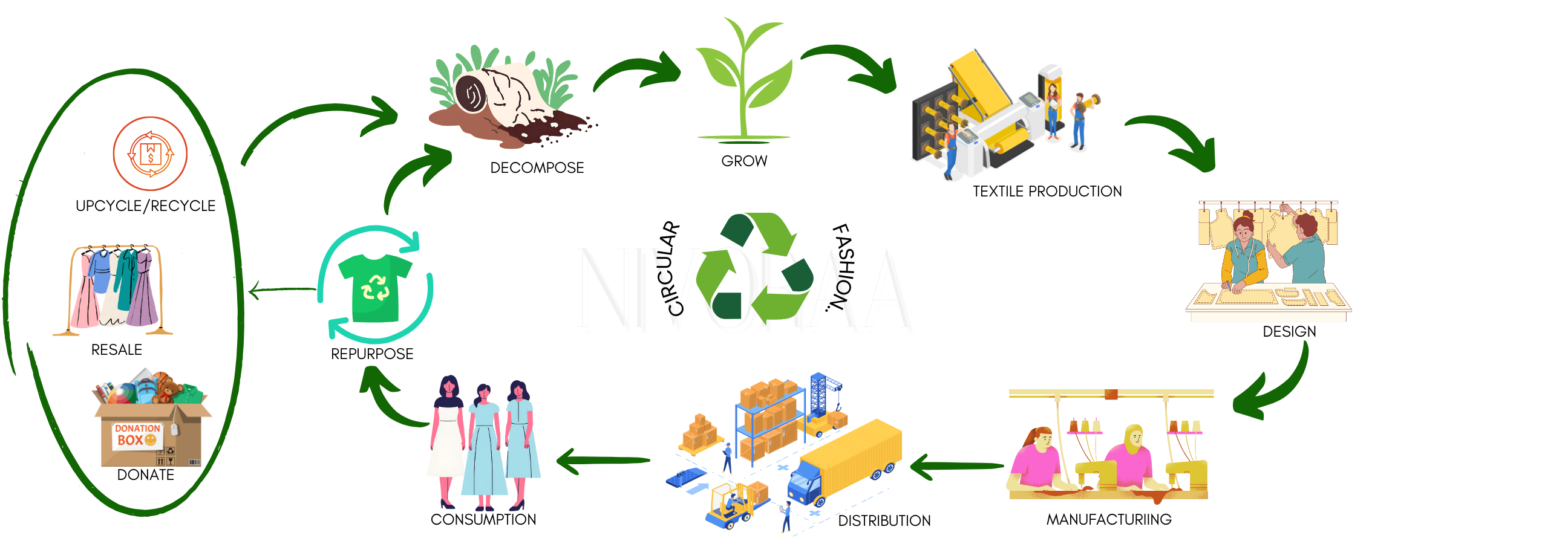
Greenwashing in Sustainable Fashion: Unveiling the Truth and Paving a Path Forward for Fashion Startups in India
In recent years, the fashion industry has witnessed a surge in sustainability initiatives as brands respond to growing consumer demand for ethical and eco-friendly products. However, amidst the proliferation of sustainability claims, a concerning trend has emerged: greenwashing. Greenwashing occurs when brands misleadingly market themselves as environmentally friendly or sustainable to appeal to conscientious consumers, despite lacking genuine commitment or taking substantive actions to reduce their environmental impact. In this blog post, we'll delve into the phenomenon of greenwashing in sustainable fashion, explore its implications, and provide guidance for fashion startups in India on how to avoid falling into this deceptive trap.
The Rise of Greenwashing in Sustainable Fashion
As sustainability becomes increasingly mainstream, many fashion brands have rushed to capitalize on the trend, portraying themselves as champions of environmental responsibility. Yet, behind the veneer of green credentials often lies a stark reality: greenwashing. From vague claims of "eco-friendly materials" to token sustainability initiatives that offer little substantive change, greenwashing tactics are diverse and pervasive.
Implications of Greenwashing
The consequences of greenwashing are far-reaching and detrimental, both for consumers and the environment:
- Consumer Deception: Greenwashing misleads consumers into believing they are making environmentally responsible choices when, in fact, they may be supporting brands that prioritize profit over planet.
- Undermining Genuine Efforts: Genuine sustainable fashion brands that invest time, resources, and effort into implementing meaningful sustainability practices are undermined by greenwashing competitors, leading to a loss of trust and credibility in the industry.
- Environmental Harm: By perpetuating the illusion of sustainability without enacting substantive change, greenwashing perpetuates the cycle of environmental degradation and contributes to the depletion of natural resources.
How Fashion Startups in India Can Minimize Greenwashing
As a fashion startup in India, navigating the complexities of sustainability while avoiding the pitfalls of greenwashing requires careful consideration and commitment to transparency and authenticity. Here are some strategies to minimize greenwashing and build a genuinely sustainable brand:
Educate Yourself and Your Team
Before embarking on sustainability initiatives, take the time to educate yourself and your team about what true sustainability entails. Understand the environmental and social impacts of your supply chain and production processes, and identify areas where improvements can be made.
Set Clear Sustainability Goals
Define clear, measurable sustainability goals that align with your brand's values and mission. Whether it's reducing carbon emissions, minimizing water usage, or promoting ethical labor practices, articulate your objectives transparently and hold yourself accountable to them.
Embrace Transparency
Transparency is key to building trust with consumers and demonstrating your commitment to sustainability. Provide detailed information about your materials, sourcing practices, and production processes, allowing consumers to make informed purchasing decisions.
Avoid Greenwashing Traps
Be wary of greenwashing traps such as vague or unsubstantiated sustainability claims, misleading marketing tactics, or token gestures that offer little substantive impact. Instead, focus on implementing genuine, tangible sustainability initiatives that drive meaningful change.
Seek Certification and Accreditation
Consider obtaining certifications or accreditations from reputable third-party organizations that validate your sustainability claims. Certifications such as Global Organic Textile Standard (GOTS), Fair Trade, or Bluesign can lend credibility to your brand's sustainability credentials.
Engage with Stakeholders
Engage with stakeholders, including suppliers, manufacturers, employees, and consumers, to foster collaboration and transparency throughout your supply chain. By building relationships based on trust and accountability, you can amplify your sustainability efforts and drive positive change collectively.
Continuously Improve and Innovate
Sustainability is an ongoing journey of improvement and innovation. Continuously evaluate your practices, seek feedback from stakeholders, and explore opportunities for innovation and optimization to minimize your environmental footprint and maximize your positive impact.
In conclusion, greenwashing poses a significant challenge to the credibility and integrity of the sustainable fashion movement. As fashion startups in India, it's imperative to prioritize transparency, authenticity, and genuine commitment to sustainability to avoid falling into the greenwashing trap.
In navigating the landscape of sustainable fashion, Nivoraa is committed to authenticity and transparency. Since its inception, Nivoraa has been steadfast in its dedication to genuine sustainability, striving to embed eco-conscious practices throughout its operations. Through ongoing efforts such as meticulous sourcing of sustainable materials, transparent production processes, and tangible initiatives aimed at reducing environmental impact, Nivoraa is actively working towards walking the talk of sustainability. With a culture of integrity and accountability, Nivoraa aims to exemplify what it means to be a genuine brand in an industry where greenwashing is prevalent, aspiring to earn the trust and loyalty of conscientious consumers seeking authenticity in their fashion choices.
Blog written by Nishi Arora | 3-4 mins read





